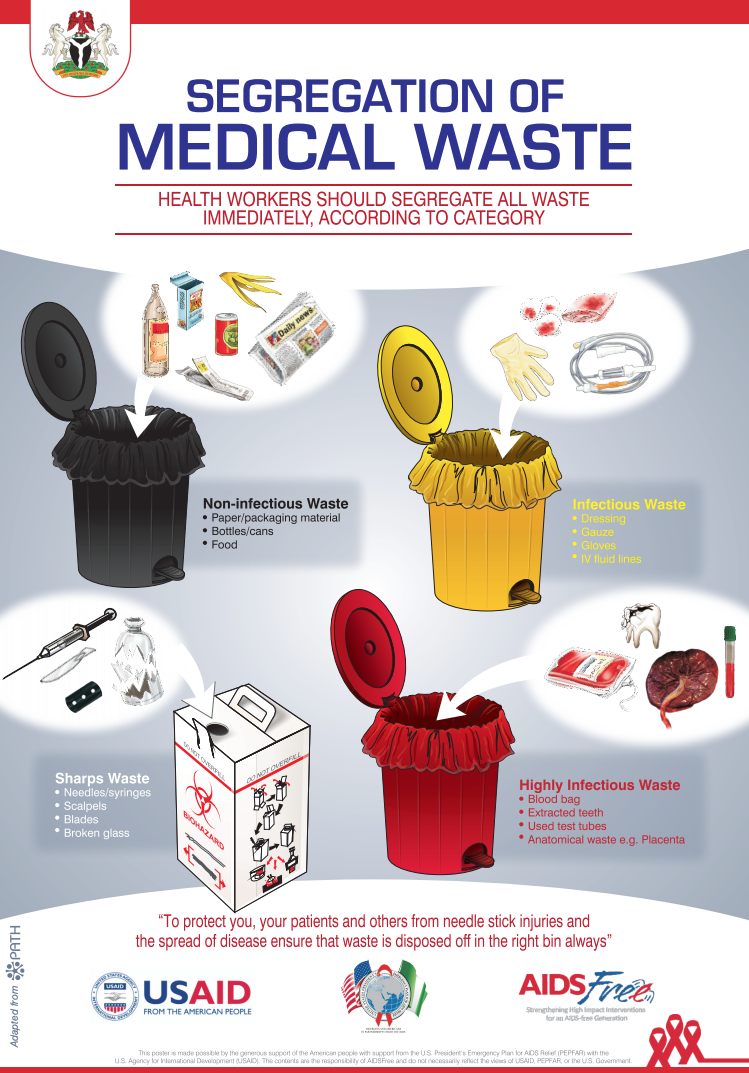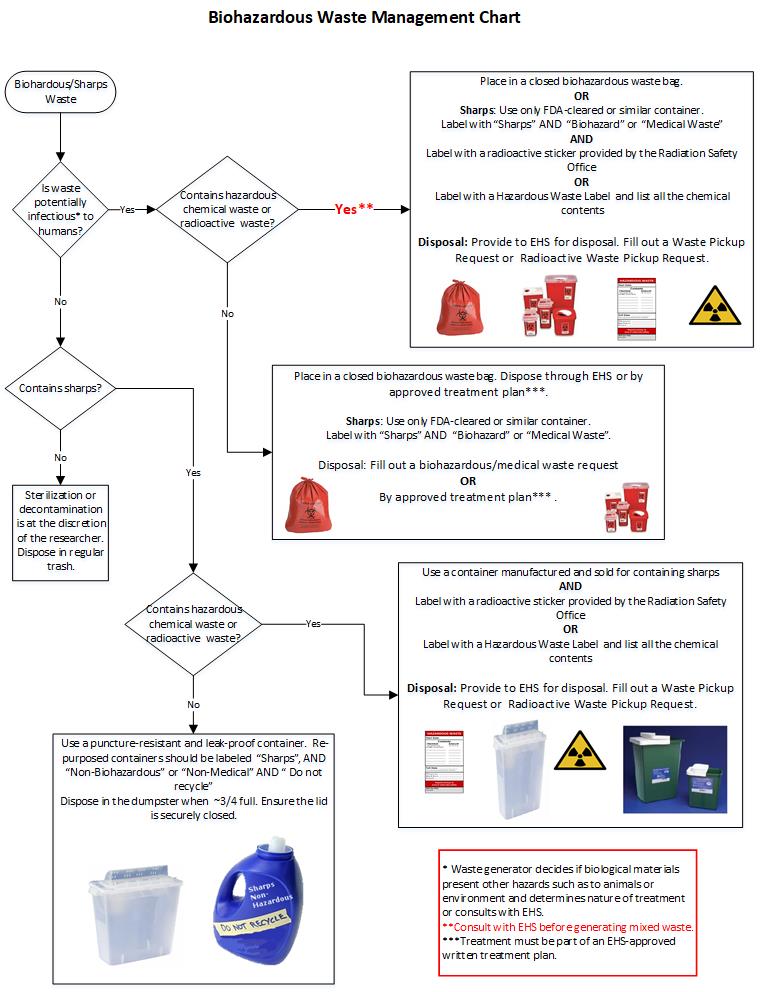Tailored Medical Waste Disposal Service: Meeting Healthcare Conformity Requirements
Wiki Article
Appropriate Disposal Strategies for Clinical Waste
Proper disposal methods for clinical waste are of utmost significance in making certain the safety and security of both healthcare workers and the public. The appropriate handling and disposal of medical waste is vital to stop the spread of infectious diseases and the contamination of the environment. This includes the safe disposal of sharps, infectious waste, and pharmaceutical waste. Following strict standards set by regulatory bodies is important to preserve compliance with legal laws and secure public wellness. This intro will certainly check out the importance of appropriate medical garbage disposal, provide guidelines for dealing with different kinds of waste, and stress the requirement for health care centers to take on ideal methods. By adhering to these standards, health care providers can add to a more secure and healthier environment for all.Importance of Correct Clinical Waste Disposal
Correct medical waste disposal is of utmost relevance in order to avoid the spread of infections and protect public health. Clinical waste describes any kind of waste generated during medical procedures or from the medical care market. This waste can contain transmittable products, such as blood or physical fluids, sharps, drugs, and various other potentially harmful materials. Otherwise gotten rid of properly, medical waste can posture major threats to medical care employees, individuals, and the basic public.Among the main reasons for appropriate clinical garbage disposal is to stop the spread of infections. Clinical waste can harbor numerous virus, including microorganisms, viruses, and various other bacteria that can trigger conditions. Improper disposal can cause the contamination of surfaces, water resources, and air, increasing the threat of infections. By safely throwing away clinical waste, the opportunities of direct exposure to these microorganisms are considerably minimized, ensuring the safety and security of medical care workers, individuals, and the neighborhood at big.
In addition, appropriate clinical waste disposal is vital for securing public health and wellness. By following correct disposal methods, such as partition, containment, and treatment, we can decrease the prospective risks associated with medical waste and guard the health of the neighborhood.
Handling and Disposing of Sharps
When it pertains to the handling and disposal of sharps, adherence to correct methods is essential for guaranteeing the safety and security of medical care employees and avoiding the threat of injury or infection. Sharps consist of needles, syringes, lancets, and other things with the possible to pierce or reduce the skin. Because of their prospective to send bloodborne microorganisms, such as HIV and hepatitis B and C, it is vital to get rid of and take care of of sharps properly.
Disposal of sharps containers must comply with regional laws and standards. It is best to use certified clinical waste disposal solutions that specialize in the correct handling and disposal of sharps to ensure conformity with policies and decrease risks to healthcare workers and the atmosphere.
Guidelines for Infectious Waste Disposal
Healthcare centers should stick to stringent guidelines for the disposal of contagious waste to avoid the spread of microorganisms and shield public wellness. Infectious waste, additionally called biohazardous or biomedical waste, refers to materials that are potentially polluted with contagious agents or other hazardous materials. These products include blood-soaked plasters, used gloves, societies, and specimens. Correct disposal of infectious waste is critical to make sure the safety and security and wellness of health care employees, people, and the general public.The standards for contagious waste disposal differ depending on the country and neighborhood policies, yet there are some usual techniques that medical care facilities ought to follow. All transmittable waste ought to be segregated from other kinds of waste at the factor of generation. Infectious waste should be carried and disposed of by certified waste monitoring companies that specialize in managing biomedical waste.
It is very important for medical care centers to have detailed training programs in area to educate personnel on the appropriate treatments for contagious waste disposal. This includes training on waste partition, storage space, and dealing with strategies. By complying with these guidelines, health care facilities can properly handle contagious waste, lower the risk of infections, and secure public wellness.
Best Practices for Pharmaceutical Waste Disposal
Drug waste disposal should always be conducted frequently and in conformity with professional guidelines. Proper management of check that pharmaceutical waste is vital to secure public health and the environment. Pharmaceuticals can present a substantial danger if not gotten rid of properly, as they may contaminate water sources, injury aquatic life, and even contribute to the development of antibiotic resistance.One of the ideal methods for pharmaceutical garbage disposal is to develop a designated collection system within healthcare facilities. medical waste removal service. This system should consist of different containers for different sorts of pharmaceutical waste, such as run out medications, unused medicines, and infected materials. These containers should be plainly identified and found in easily obtainable areas to encourage correct disposal by health care professionals
Moreover, it is important to educate healthcare staff about the correct handling and disposal of pharmaceutical waste. Training programs need to concentrate on identifying different sorts of pharmaceutical waste, recognizing the connected risks, and adhering to the suitable disposal procedures. Routine pointers and updates should be supplied to guarantee conformity with disposal standards.
In addition to inner methods, healthcare centers should likewise establish partnerships with qualified waste administration firms. These firms concentrate on the collection, transport, and disposal of pharmaceutical waste. By functioning with these experts, medical care facilities can guarantee that their pharmaceutical waste is gotten rid of safely and in compliance with neighborhood regulations.
Compliance With Legal Laws
In order to ensure conformity with legal guidelines, it is imperative for medical care facilities to follow proper disposal methods for clinical waste. Medical waste postures a significant threat to public health and the atmosphere, making it crucial for healthcare centers to dispose and deal with of it based on the law.
Regulatory bodies, such as the Occupational Safety And Security and Health Administration (OSHA) and the Environmental Defense Agency (EPA), have established standards and demands for the correct disposal of clinical waste - WasteX Medical Waste Disposal. These regulations intend to shield health care workers, waste management employees, and the public from prospective hazards related to medical waste

Non-compliance with lawful laws can cause extreme effects for health care facilities, consisting of fines, lawful responsibilities, damages to credibility, and prospective harm to public health. It is important for healthcare facilities to remain updated with the latest laws and constantly monitor and enhance their waste administration practices.
Verdict
Adhering to guidelines for taking care of and disposing of sharps, transmittable waste, and pharmaceutical waste is important. It is important that medical care facilities maintain stringent procedures for the correct disposal of clinical waste to reduce threats and keep a safe healthcare atmosphere.Medical waste refers to any type of waste created during medical procedures or from the healthcare market. Contagious waste, likewise understood as biohazardous or biomedical waste, refers to products that are potentially contaminated with contagious agents or other hazardous compounds. All contagious waste ought to be segregated from other types of waste at the factor of generation. Infectious waste ought to be delivered and disposed of by qualified waste monitoring firms that specialize in handling biomedical waste.
Adhering to standards for getting rid of and managing of sharps, contagious waste, and pharmaceutical waste is vital. (medical waste removal service)
Report this wiki page